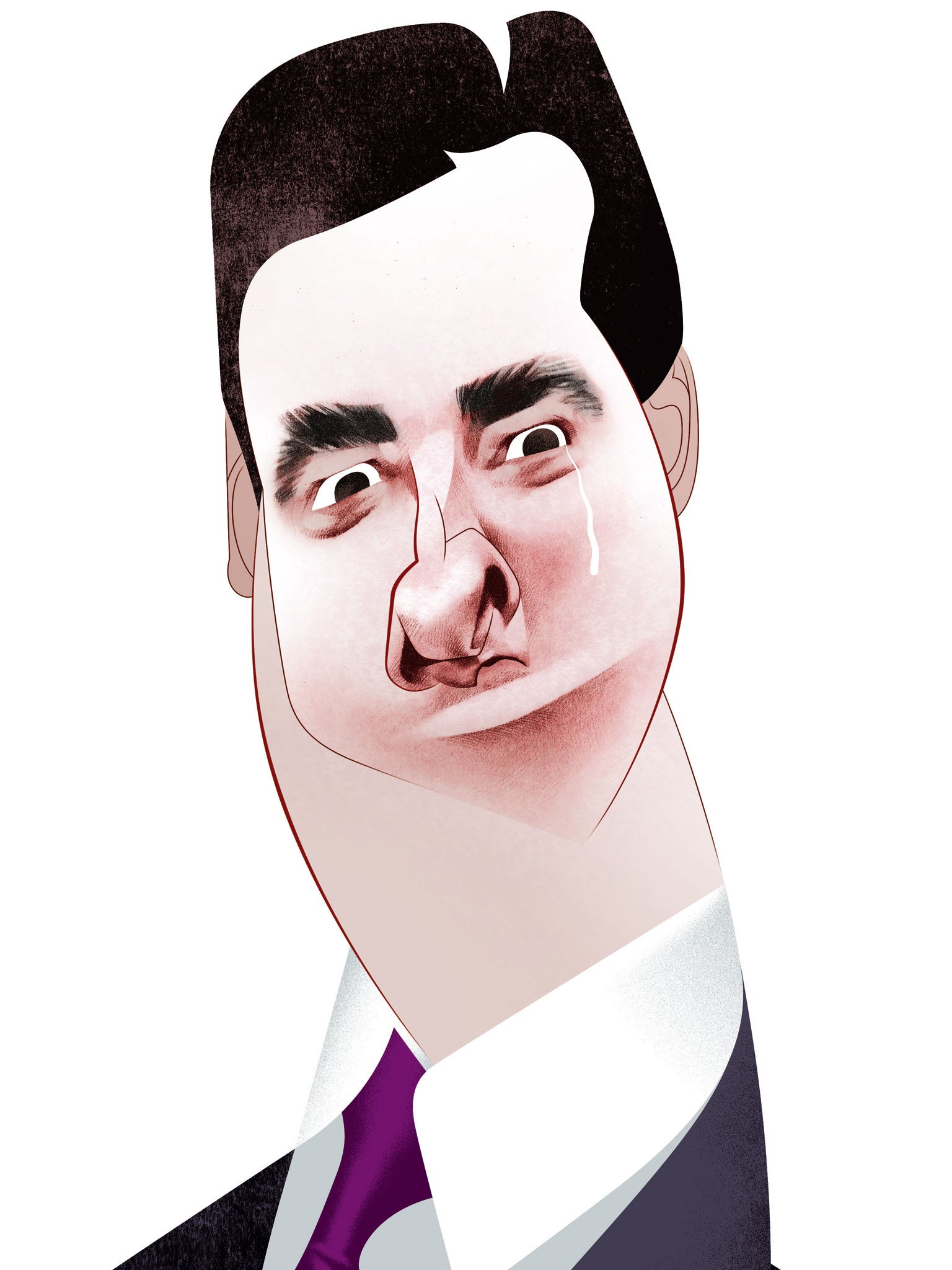Touched by George Osborne's tears? Don't worry. It'll all end in votes
The Chancellor's grief at Lady Thatcher's funeral won't sway his critics, but many found it both genuine and moving

Voters think of him as an overgrown public schoolboy with a haughty sneer and a thirst for cuts. The IMF wants him to tear up his economic strategy, another ratings agency has junked Britain's triple-A status, and this week could bring headlines of a triple-dip recession.
No wonder George Osborne cried at Margaret Thatcher's funeral last week. And not a very British dabbing away of a discreet tear while keeping a stiff upper lip, but eyes filled with fat, salty globules of lachrymosity, a left cheek unashamedly streaked with wetness.
Cynics said the Chancellor, who met the former prime minister just once, must have been putting it on, or they asked why he has never cried over the harsh spending cuts he is imposing on welfare. Yet those who know him well say Mr Osborne's public image as a hard-faced austerity chancellor is a far cry – if that's the right word – from his private persona.
Friends insist he is not normally a blubberer, in public or in private – in fact, one person who knows him well says they have never seen him cry. But they say he is open, even warm, and "good with eye contact" – compared with David Cameron, who had to be coached early on as Tory leader to make eye contact with the people he was talking to.
Mr Osborne's biographer, Janan Ganesh, says in his book, Austerity Chancellor, that last year's much-derided Budget was the result of a combination of Mr Osborne's "vulnerability and overconfidence", which might sum up the man himself.
When he was booed in front of 80,000 people at the Olympic stadium during a Paralympic medals ceremony last year, Mr Osborne looked distinctly crestfallen. But should he really be shocked that he is not well loved by the public?
At the last election, focus groups showed a generally balanced response to pictures of Mr Cameron, but when he was shown alongside Mr Osborne, the Tory leader's toxicity levels rose. Little wonder Mr Osborne was kept well away from the cameras during the campaign.
When he joined Twitter last month, the Chancellor was greeted with insults, even death threats, from users. On Thursday, the latest GDP figures will be published, revealing what is expected to be a continuing flat line for economic growth or even negative figures – which would mean Britain has entered a triple-dip recession. Those tear ducts have been welling up for good reason.
But will this outpouring of grief help Mr Osborne show the world he is a human being, a 41-year-old father of two, besides being an "iron chancellor"?
Deborah Mattinson, director of the research and strategy company BritainThinks, believes the episode in St Paul's can only help his image. She thinks voters are disenchanted with politicians who appear "identikit and formulaic", who say only what they think the public want to hear. "In a curious way, showing a weakness could strengthen him. I think people will see this as honest." Focus groups showed that voters tended to not know much about the Chancellor, which would also show how the crying could be beneficial to his image: "Anything that gives him a profile or fleshes him out as a person is very helpful."
Cary Cooper, professor of organisational psychology and health at Lancaster University Management School, agreed: "I think it will help his image, not because he planned that to be the case. Politicians usually cannot admit they have made a wrong decision. But when they show weakness – even when Margaret Thatcher cried when she left Downing Street – people are quite shocked to see that."
Professor Cooper said those who were vehemently opposed to Mr Osborne already would remain opposed and say that he faked his tears, but the floating voters – the very ones the Tories need if they are to secure an outright majority at the next election – could be influenced by the crying Chancellor.
"Politicians don't understand that the more human they appear to the public, the more likely people will be to vote for them. I don't understand why politicians don't do this more."
Perhaps Mr Osborne can take most comfort in the experience of Kjell Magne Bondevik, who, when Prime Minister of Norway in 1998, announced he was suffering from depression and needed to take three weeks off. Far from losing support, he received thousands of messages from wellwishers and, crucially, went on to win another election.
Subscribe to Independent Premium to bookmark this article
Want to bookmark your favourite articles and stories to read or reference later? Start your Independent Premium subscription today.

Join our commenting forum
Join thought-provoking conversations, follow other Independent readers and see their replies